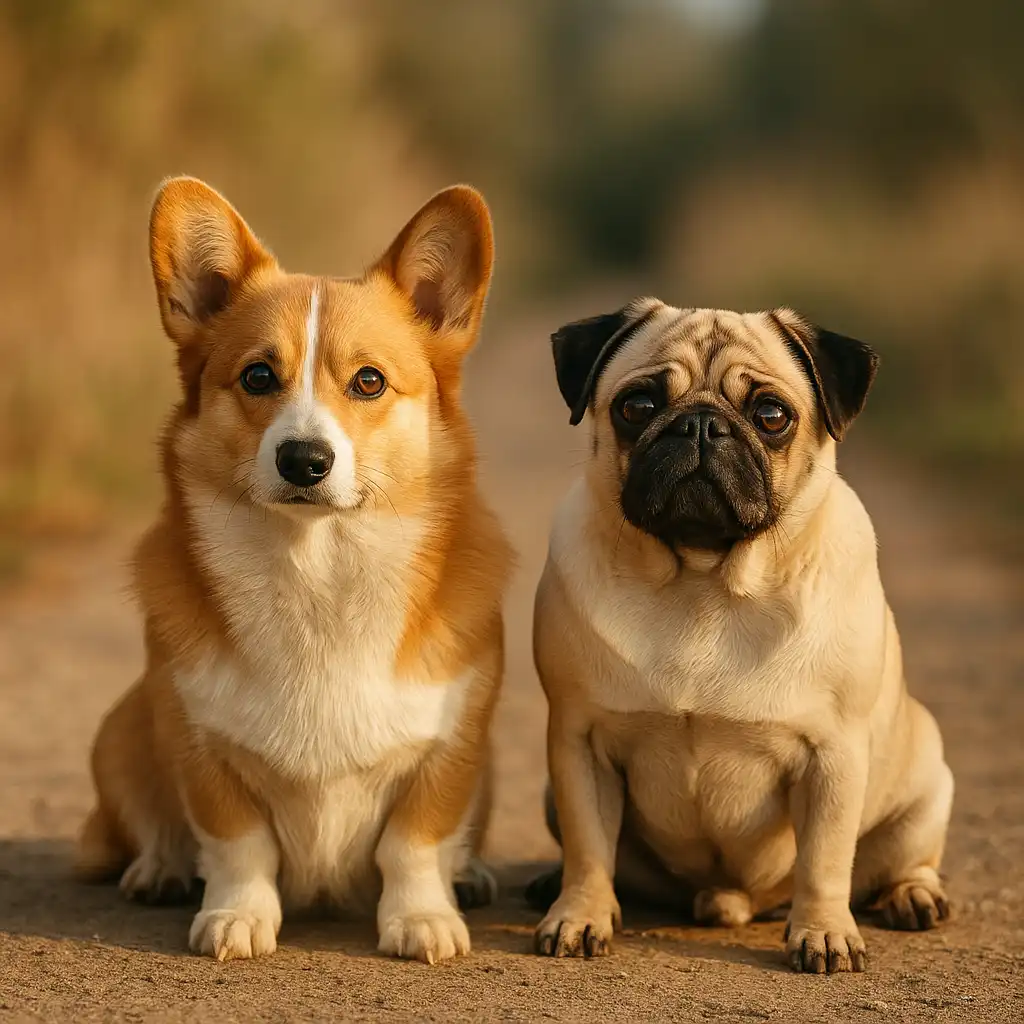Corgi vs Pug: Which One Fits Your Life Best?

Disclosure: This post contains affiliate links. As an Amazon Associate, I earn from qualifying purchases—at no extra cost to you.
Choosing between a Corgi and a Pug can be a tough decision. Both breeds are small, full of personality, and adored by dog lovers around the world. However, they differ in temperament, care needs, and energy levels. Whether you’re looking for a laid-back companion or a spunky sidekick, understanding the key differences will help you decide which breed is the better match for your lifestyle.
Personality and Temperament
Corgis are lively, alert, and intelligent. Originally bred for herding cattle, they have a strong work ethic and love to be mentally and physically engaged. They’re often vocal and thrive when given a job to do, whether it’s fetching a ball or learning a new trick.
Pugs, on the other hand, are known for their laid-back and affectionate nature. They’re true companion dogs who prefer cuddles over cardio. Pugs are typically sociable with children and other pets, and their goofy behavior adds charm to any home.
Size and Appearance
Corgis, especially Pembroke Welsh Corgis, have long bodies, short legs, upright ears, and a fox-like face. They usually weigh between 25 and 30 pounds, and their sturdy build makes them look larger than they are.
Pugs are compact with a round head, big eyes, and a curled tail. Weighing between 14 and 18 pounds, they’re smaller but more densely built. Their wrinkled faces and snorting sounds are part of their appeal—but also come with some care needs.
Exercise and Energy Levels
Corgis need a good amount of exercise. They enjoy long walks, active playtime, and puzzle games. Without enough stimulation, they can become bored and even develop behavioral issues.
Pugs are much more moderate. While they enjoy short walks and light play, they tire quickly and may struggle in hot weather. They’re ideal for apartment living or households that prefer a slower pace.
Grooming and Maintenance
Both breeds shed, but in different ways. Corgis have a thick double coat that sheds heavily, especially during seasonal changes. Regular brushing is essential to manage loose fur.
Despite their short coat, pugs also shed. Their fine hairs can end up everywhere, and they require attention to their facial wrinkles to prevent irritation. Routine grooming for both breeds is important, but Pugs may need more frequent cleaning due to skin folds.
Health Considerations
Corgis are generally healthy but prone to back problems due to their long spine, as well as hip dysplasia and degenerative myelopathy. Regular vet visits and controlled exercise can help manage risks.
Pugs are brachycephalic, which means their flat faces can cause breathing issues. They’re also prone to eye injuries, skin infections, and obesity. Keeping them cool and at a healthy weight is vital for their well-being.
Conclusion
So, corgi vs pug—which is better for you? If you want a spunky, active dog that thrives with engagement and can handle more exercise, a Corgi could be the ideal match. If you’re looking for a calm, loving companion who brings humor and snuggles to your daily life, a Pug may be perfect. Both breeds offer something special—it’s just a matter of finding the one that fits your pace and personality.






